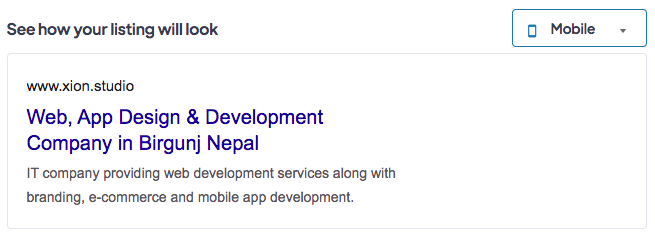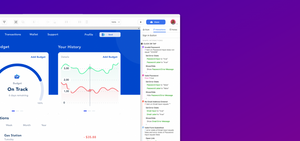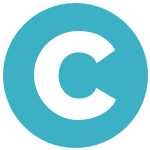
Appeal to Searchers and Search Engines with SEO
Get Online with a Strong Business Website
In this article we will answer:
- How is SEO different from SEM?
- How do search engines work?
- Why should I optimize my site for both search engines and the people doing the search?
🔎 SEO. SEM. SEO. SEM.
They kind of sound the same, so it's easy to think they really are the same. But SEO (Search Engine Optimization) works differently from SEM (Search Engine Marketing).
I short, SEO means making small changes to your website that might help it naturally show up in people's search results. Meanwhile, SEM means paid search ads. SEM uses ads to get a higher position in paid search results. SEO uses your website to get a higher position in organic or main search results.
Like we said earlier,
SEO is about priming your website to be the best search engine result it can be. And that's pretty crucial in the search game.
Think about this: 95% of searchers stick with the listings on the first page of results. So the closer your listing is to that page, the better. To do this, you need to know how search works. We'll use Google as an example, but there are obviously other search engines out there like Bing, Yahoo Search, Yandex etc.
Google starts by crawling the web. It follows the links from page to page, collecting as much of the web as possible. It puts all these collected pages in an index, sorting them by content and other features. When someone does a search, Google ranks the results for them using it's patented PageRank algorithm. It uses algorithms to figure out what the searcher is looking for and serves up the most relevant pages from the index. All that means you should make your site as attractive as possible to both a search engine and a searcher. It helps if you can step into the minds of both and see how they picture search results.
Below is a slide created and posted by Eric Schmidt, former CEO and Chairman at Google that can help you understand how Google crawls, indexes and presents the search results to a user.
In general there are 3 main pieces to search result (though search engines may change these elements over time). These 3 pieces include:
- TITLE
The name of the webpage and the company. - URL
The web address of the site. - DESCRIPTION
A short snippet describing the webpage content.
Below is an example search result for "software development company in Ireland"

Search engines will see this information as a part of a code. People will see the information in their search results page. It will be organized and color-coded with a clickable title and URL. Because search engines and people see search results in different ways, you have to prepare your site for them in different ways.
The good news is optimization is usually about tweaking and improving versus a complete site overhaul.
To get your site ready for search engine viewing, make sure it's easily navigated and structured logically so it can be crawled and indexed accurately.
It helps to know some Dos and Don'ts.
✅ DO
- Your page title should be unique and accurate, and sum up your business in a short, info-rich phrase.
- Write different descriptions for each page, especially if you have a lot of pages.
- Chose a domain name that is easy to read and descriptive.
- Make subpage URLs easy to read like www.yourdomain.com/mysubpage
❌ DON'T
- Use a title that's creative but has nothing to do with the page.
- Use the default title or a vague one, like "Untitled" or "New Page".
- Write a description that has nothing to do with the page's content or is generic, like "This is a web page".
- Use lengthy, complicated URLs like www.yourdomain.com/prodid?1234
Keeping these Dos and Don'ts in mind can help your site be more appealing to search engines. Now we'll give you tips on how to make it more appealing to people doing searches.
While optimizing for search engine crawling is about tweaking words and URLs, optimizing for searchers is about crafting content. Strong, engaging and useful content will probably affect your search status more than anything else. People love to share great content with others through social media, blogs, emails, etc. All that organic word-of-mouth may help you get more visits and repeat visitors.
While not everyone can be a copywriter, you can follow a few guidelines to help you craft better content.
First, you can make your text easy to read and follow. Organize your content and keep it focussed on the topic at hand. Dividing it into logical, short chunks helps people find what they are looking for faster.
Also pay attention to your images. Write a short caption below image and put vital info in the text rather than in the images.
Make sure to regularly add new content. It keeps your fans coming back and brings in new visitors.
SEO BRAINSTORM STARTER
DO THIS NOW (example provided)
Think about your website's homepage or landing page. What content is on the page? What are some keywords on it? Now try writing a search-optimized title and description for that page.
1️⃣ of 6: Create the 1st part of the title. What's your business' name?
---------------- (eg: Xion Design Studio)
2️⃣ of 6: Create the 2nd part of the title. Describe your homepage's content or your business in a short phrase.
----------------(eg: Web, App Design & Development Company in Birgunj Nepal)
3️⃣ of 6: Provide your URL
----------------(eg: https://www.xion.studio)
4️⃣ of 6: Write your description. What category of product is this?
----------------(eg: Web and mobile app design and development company)
5️⃣ of 6: Write your description. What does your product help people do ( verb or verb phrase)?
----------------(eg: IT company providing web development services along with branding, e-commerce and mobile app development.)
6️⃣ of 6: What are 2 important product or services features listed on your homepage (AKA keywords)?
----------------(eg: web design)
----------------(eg: mobile app)
The following are the results of above brainstorming:
HTML Code


✔️ Key Takeaways
- SEO means making small changes to your website so it's more likely to show up in people's organic search results.
- The 3 main pieces of a search result are the webpage title, description and URL.
- You should make your site crawlable for search engines and appealing to people doing searches.
Cover photo by Benjamin Dada @dadaben_ via Unsplash








Comments